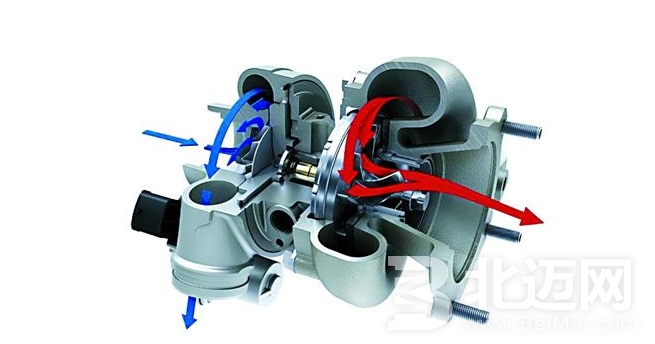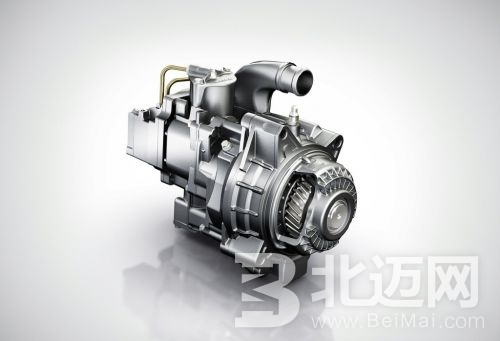Is the turbocharged engine easy to burn oil?
There are a lot of riders who say that the turbocharged engine is easy to burn oil, so why is the turbocharged engine burning oil than the self-igniting suction engine? The following small series will explain to the riders why the turbocharged engine burns oil compared to the self-ignition.

It is certain that the application of the turbocharged engine does control the exhaust emissions very well, contributing to the global real-time energy saving and emission reduction. The engine can increase the engine by using the turbocharger without changing the displacement. The amount of intake air, to improve engine power, such as a 1.6T engine, the power output is higher than 2.0 naturally aspirated engine, but the fuel consumption is lower than 2.0 naturally aspirated engine.
Turbocharged engines have high power and low fuel consumption, and they also have some disadvantages. For example, when a turbocharger engine is running, the engine block temperature and the combustion chamber pressure are much higher than the naturally aspirated engine, which affects the engine life and the engine structure in which the turbocharger is installed. More complicated, adding cost to maintenance. Even many riders report that turbocharged engines consume too much oil.
At present, there are two main types of engine block materials for automobiles, one is cast iron and the other is aluminum alloy. Regardless of the materials used, they have their own advantages and disadvantages. For example, although the cast iron engine has a small expansion ratio, it is heavier in weight and has lower heat conduction and heat dissipation than an aluminum alloy engine. While the aluminum alloy engine is light in weight and has good heat dissipation and heat dissipation, the expansion coefficient is higher than that of the cast iron material. In particular, many engines now use aluminum alloy cylinders and other components, which requires some gaps between the components during the design and manufacturing process, such as between the piston and the cylinder, so as to prevent the gap from being too small after high temperature expansion. .
The disadvantage of this approach is that when the engine is started, when the water temperature and the engine temperature are still relatively low, a small amount of oil will flow into the combustion chamber through these gaps, which is the case of burning oil.
Of course, the current engine manufacturing technology is very mature. Compared with naturally aspirated engines, the condition of turbocharged engine oil has been significantly improved. Even if a small amount of oil will flow into the combustion chamber, this amount is very small. of. Moreover, the turbocharger will reach a very high temperature under working conditions and will be cooled by oil, which is the reason why the turbocharged engine is slightly larger than the naturally aspirated engine oil.
In fact, if a reliable turbocharger is installed, after driving 100,000 or even 200,000 kilometers, the turbocharger is still a lever, but the cause of the oil is because of the oil seal between the turbocharger and the intake pipe. The seal is damaged, why it is damaged here, it must be caused by the long period of oil change or the use of inferior oil.
Therefore, if you want to make the engine with turbocharger not burn the oil as much as possible, you may want to do the following:
1
Keep the turbocharger clean
First of all, to ensure that the engine oil filter is clean, to prevent dust and other impurities from entering the high-speed rotating supercharger impeller, dust particles may damage the supercharger blades, resulting in unstable speed, increased wear of the bushing and seals.
2
Use high quality synthetic or semi-synthetic motor oil
High-quality oil not only has better lubrication, but more importantly, it is cleaning and protection.
3
Avoid high engine speed after starting the vehicle
Engines and turbochargers require oil to protect them. After the cold start, the oil is not well lubricated. If the engine and supercharger are running at high speed, it will cause relatively large wear. Wait a few minutes after starting, let the oil work back to normal and then increase the throttle. This is especially important in winter.

4
Regularly check the seal ring of the turbocharger
Never check the turbocharger while performing vehicle maintenance. This includes checking the seal of the turbocharger's seal ring, oil leakage at the lube pipe and joints, abnormal noise in the turbocharger, and abnormal vibration. Turbochargers are expensive, and engine failures can occur after a hidden danger. Don't neglect to check for watermelons and sesame seeds.
The above is a small series for the riders to sort out some of the turbocharged engine is easy to burn oil? Some related issues, I hope that the riders can understand.
Camshaft Position Sensor detects the camshaft's speed, position, acceleration, and even deceleration. This is important because this information is used to control ignition timing and fuel injection timing. Information on these is sent by the sensors to the engine management system, which makes the adjustments needed for the fuel injection's timing. With a properly working Sensor, your engine can run smoothly and more economically. Meaning, you'll have less engine problems while you're able to save fuel at the same time.
Camshaft Position Sensor
Camshaft Position Sensor,Electrical Camshaft Position Sensor,Engine Camshaft Position Sensor,Jeep Camshaft Position Sensor
NINGBO DGOFEN AUTO TRADE CO., LTD , http://www.dgofen.com
